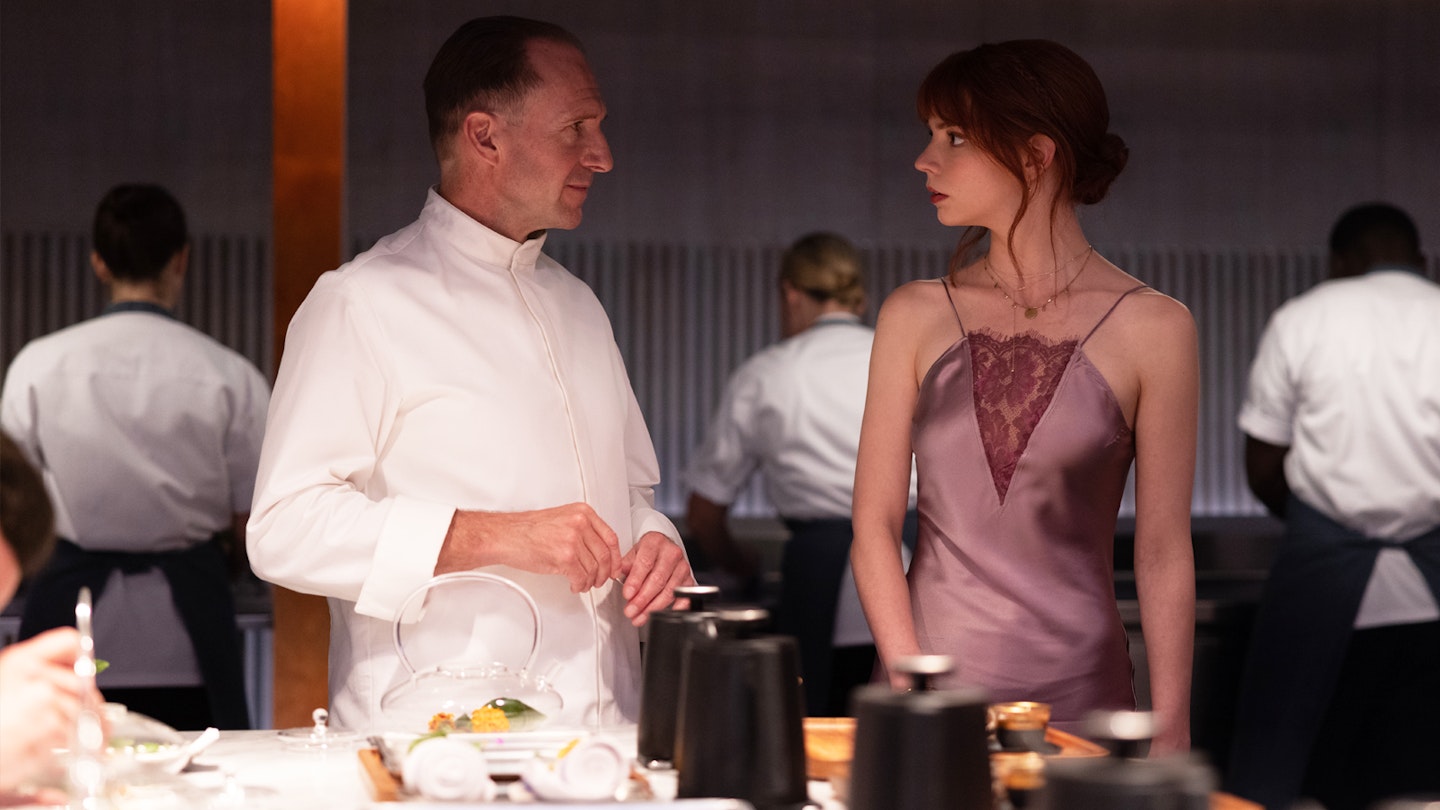Mark Mylod’s The Menu begins as a dressing-down of opulence before transforming into a trashy genre thriller, veering between delightfully silly, and just plain silly. It’s a thriller that’s never quite thrilling enough, though it’s occasionally surprising, starting with the way its lead characters clash over the setting.
Tyler (Nicholas Hoult) is a die-hard fanboy of uber-chef Julian Slowik (Ralph Fiennes), so the enormous price tag is no object when he has the chance to visit Hawthorne, the chef’s secretive, invite-only restaurant on a lush, secluded island. His excitement is effervescent, if a tad performative. Margot (Anya Taylor-Joy), on the other hand, isn’t afraid to make it known how unimpressed she is by all the pomp and circumstance, from Hawthorne’s fancy modernist décor, to the eerily mechanical maître d', Elsa (Hong Chau), who is as much a spokesperson as she is an acolyte. Hawthorne is the kind of establishment that demands tireless dedication from its staff, and Mylod satirizes this cult-like kitchen dynamic through amusing exaggerations.

The other diners include an older gentleman who Margot seems to know (Reed Birney), a washed-up actor trying to make an impression (John Leguizamo), and a rigorous food critic (Janet McTeer), all of whom have a full view of the clockwork kitchen from the open dining space. Each time Slowik claps his hands, he commands everyone’s attention. Guests and workers alike hang on Fiennes’ every word, as he passionately describes the emotional impetus behind each deconstructed dish and its theatrical presentation. Before long, the courses begin to take macabre turns that become increasingly personal for the attendees. Unfortunately, while Fiennes may prove joyfully magnetic, this story structure renders all other characters mere passive observers to the plot.
The unfurling plot feels more like a random assemblage of ingredients than a series of carefully considered escalations.
The film’s metamorphosis from measured mystery to horror-comedy comes courtesy of violent accelerations, which arrive suddenly, and often hilariously. The presentation is pristine, akin to a straightforward prestige drama, which yields an amusing disconnect with the mounting absurdities — like Slowik waxing poetic about his violent food-themed horrors and their extravagant staging, practically twirling an invisible moustache. However, The Menu struggles to make his philosophical musings amount to much. The unfurling plot, therefore, feels more like a random assemblage of ingredients than a series of carefully considered escalations. The result is tension that dissipates right when it ought to reach its apex.
Fiennes may approach his role with the finesse of Hannibal Lecter, but The Menu is seldom more than Saw dinner theatre — a spectacle that’s fun in a gaudy sort of way, but without taking too many risks. Ironically, that’s a cardinal sin when one works in fine dining. It’s only marginally more forgivable here.

